Connected 2012 Level 4 - Oceans: A Source of Life
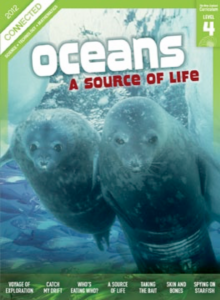
The focus in this issue of Connected is on the Nature of Science strand of the curriculum.
At times, Connected themes require the introduction of concepts that students at this curriculum level may not be able to fully understand. What matters at this stage is that students begin to develop understandings that they can grow over time.
Look inside this issue
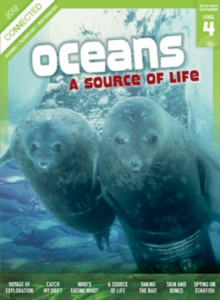
Voyage of Exploration
by Elinor Chisholm
In “Voyage of Exploration”, students read about the marine diversity in New Zealand’s territorial waters and the process that NIWA scientists use to classify organisms.
Series: Connected 2012 Level 4 - Oceans: A Source of Life
Learning area: English, Science
Curriculum level: 4
Category: Non-fiction
Strand: Nature of science
In: Connected 2012 Level 4 - Oceans: A Source of Life
Publication date: January 2012
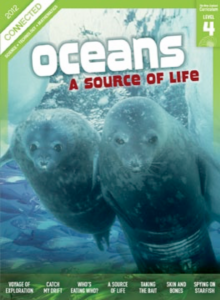
Catch My Drift
by Sarah Wilcox
In “Catch My Drift”, students learn about phytoplankton, the key producers in the ocean. Phytoplankton play a similar role to land plants, producing the carbohydrates and oxygen that marine consumers depend on. Phytoplankton also play an important role in the carbon cycle.
Series: Connected 2012 Level 4 - Oceans: A Source of Life
Learning area: English, Science
Curriculum level: 4
Category: Non-fiction
Strand: Nature of science, Living world
In: Connected 2012 Level 4 - Oceans: A Source of Life
Publication date: January 2012
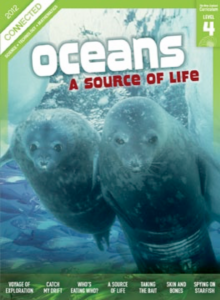
Who's Eating Who
by Bronwen Wall
“Who’s Eating Who?” introduces students to some of the creatures in the Antarctic food web. Students learn about some of the adaptations that enable these animals to survive in the harsh Antarctic environment.
Series: Connected 2012 Level 4 - Oceans: A Source of Life
Learning area: English, Mathematics and Statistics, Science
Curriculum level: 4
Category: Non-fiction
Strand: Geometry and Measurement, Statistics, Nature of science, Living world
In: Connected 2012 Level 4 - Oceans: A Source of Life
Publication date: January 2012
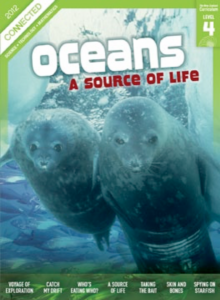
Taking the Bait
by Kate Potter
In this article, students learn about the development of the underwater bait setter. This device is designed to reduce the number of seabirds harmed through long-line fishing.
Series: Connected 2012 Level 4 - Oceans: A Source of Life
Learning area: English, Technology
Curriculum level: 4
Category: Non-fiction
Strand: Nature of technology
In: Connected 2012 Level 4 - Oceans: A Source of Life
Publication date: January 2012
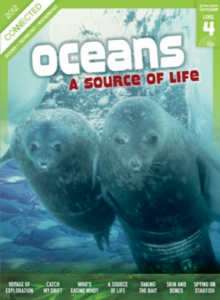
Skin and Bones
by Rebecca McLeod
In “Skin and Bones” students are introduced to the fascinating communities that develop in the carcasses of whales on the ocean floor.
Series: Connected 2012 Level 4 - Oceans: A Source of Life
Learning area: English, Science
Curriculum level: 4
Category: Non-fiction
Strand: Nature of science, Living world
In: Connected 2012 Level 4 - Oceans: A Source of Life
Publication date: January 2012
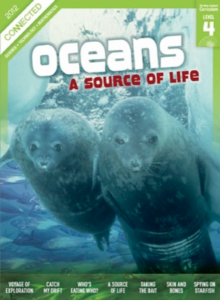
Spying on Starfish
by Rebecca McLeod
In “Spying on Starfish”, students are introduced to the work of Dr Miles Lamare, who tested a new tagging technique that could be used on sea stars. Although tagging marine animals is a common practice, tagging a sea star presented Dr Lamare and his team with several challenges.
Series: Connected 2012 Level 4 - Oceans: A Source of Life
Learning area: English, Technology
Curriculum level: 4
Category: Non-fiction
Strand: Technological knowledge
In: Connected 2012 Level 4 - Oceans: A Source of Life
Publication date: January 2012


 Literacy Online home
Literacy Online home
